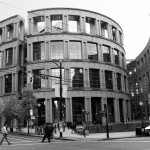“Nothing of him that doth fade,
But doth suffer a sea-change
Into something rich and strange.”
— Shakespeare, The Tempest
Life is full of repetition: attempts to remake, remodel, or rewrite what has gone before. From covers or remakes of songs and movies to the renovation or restoration of buildings and monuments, from the reinvention of communication technologies to re-readings (even misreadings) of literary works, we see a pervasive desire to adapt, rework, or subvert inherited cultural forms and traditions.
But repetition is never simple. The recurrence of historic problems or issues is perhaps less compelling than the new concerns and connections that emerge when a deceptively familiar past is reinterpreted in the present. This course examines a variety of philosophical and literary texts through a series of thematic clusters that demonstrate the dynamic tension between established understandings and new meanings.
Our hypothesis is that the appeal of the classics comes not from some timeless essence, but from our need to remake, remodel, and reinterpret the past in ever new ways. When we study these texts together, both “originals” and “remakes,” they shed new light on each other and challenge us to rethink the relations between philosophy and popular culture, tradition and modernity.
Teaching team
- Jon Beasley-Murray (French, Hispanic, and Italian Studies)
- Miranda Burgess (English)
- Robert Crawford (Political Science)
- Jill Fellows (Philosophy)
- Christina Hendricks (Philosophy)
Texts
- Genesis
- Immanuel Kant, “Conjectural Beginning of Human History”
- Plato, Gorgias
- Sophocles, Antigone
- Judith Butler, Antigone’s Claim
- Christopher Marlowe, Doctor Faustus
- Mikhail Bulgakov, The Master and Margarita
- Thomas Hobbes, Leviathan
- Jean-Jacques Rousseau, Discourse on the Origins of Inequality
- Michel-Rolph Trouillot, Silencing the Past: Power and the Production of History
- Alejo Carpentier, The Kingdom of this World
- Aimé Césaire, The Tragedy of King Christophe
- Derek Walcott, Henri Christophe
- William Wordsworth, “Preface to Lyrical Ballads (1805)”
- William Wordsworth and Samuel Taylor Coleridge, Lyrical Ballads
- Jane Austen, Northanger Abbey
- Edgar Wright, Shawn of the Dead
- Sigmund Freud, Dora: An Analysis of a Case of Hysteria plus “Femininity” and “Female Sexuality”
- Frantz Fanon, Black Skins / White Masks
- Ian Hacking, Rewriting the Soul
- Michel Foucault, History of Sexuality: An Introduction
- Thomas Paine, Rights of Man
- Mary Wollstonecraft, The Vindications: The Rights of Men and The Rights of Woman
- Simone de Beauvoir, The Second Sex
- Joseph Conrad, Heart of Darkness
- Chinua Achebe, Things Fall Apart
- Francis Ford Coppola, Apocalypse Now
- Wayne Booth (et al), The Craft of Research



